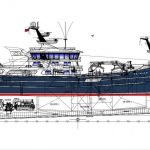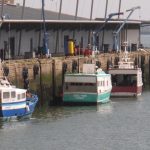Better rules on caging and fair distribution of bluefin tuna quotas among fleet segments are part of the new plan to manage bluefin tuna in the eastern Atlantic and Mediterranean.
European Parliament negotiators have ended a two-year-long stalemate on a multiannual management plan for bluefin tuna in the eastern Atlantic and the Mediterranean after reaching a deal with Council. This was approved today by Fisheries Committee MEPs by 21 votes to 3 and 0 abstentions.
‘Finally, the fishing sector can count on the Regulation that it so much deserves, thanks to the efforts made throughout more than 13 years, with a recovery plan that imposed very strict measures and great restrictions on fisheries,’ commented EP rapporteur Clara Aguilera.
‘Both institutions had to give way in their ambitions but the common good and legal security have won and we welcome this agreement, which the European fisheries sector so badly needs.’
The last agreed items concern the carry-over of non-harvested live bluefin tuna and caging authorisation and cage operations-related decisions.
A farm may be permitted to carry over catches of non-harvested live bluefin tuna from previous years only if a reinforced system of control is developed and reported by the EU country to the European Commission.
In case this carry-over is allowed, member states must convey an annual carry-over declaration to the Commission, each year by 25th May, detailing quantities, the year of catch, average weight, flag country and the International Commission for the Conservation of Atlantic Tuna (ICCAT) farm number.
Concerning caging operations, if the difference between the caged bluefin tuna and the quantities reported caught or transferred is more than 10%, the member state responsible for the catching vessel or trap shall launch an investigation and the member state responsible for the farm must fully co-operate. If the investigation concludes that bluefin tuna were missing, the weight of the missing fish shall be deducted from the country’s quota.
The text states that EU countries should try to distribute quotas fairly among the different fleet segments and confirms that small-scale and artisanal fisheries should be given ‘special consideration’ in this process of distributing national quotas.
The deal still needs to be approved by the EU Council and the full house of the European Parliament.









